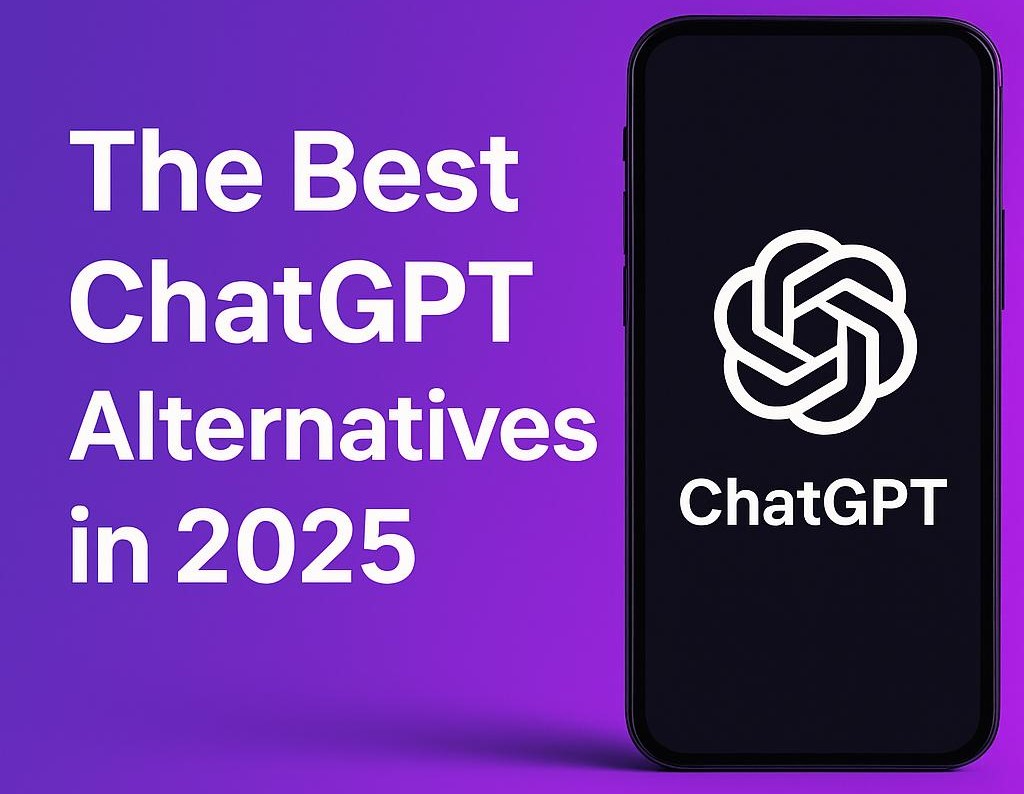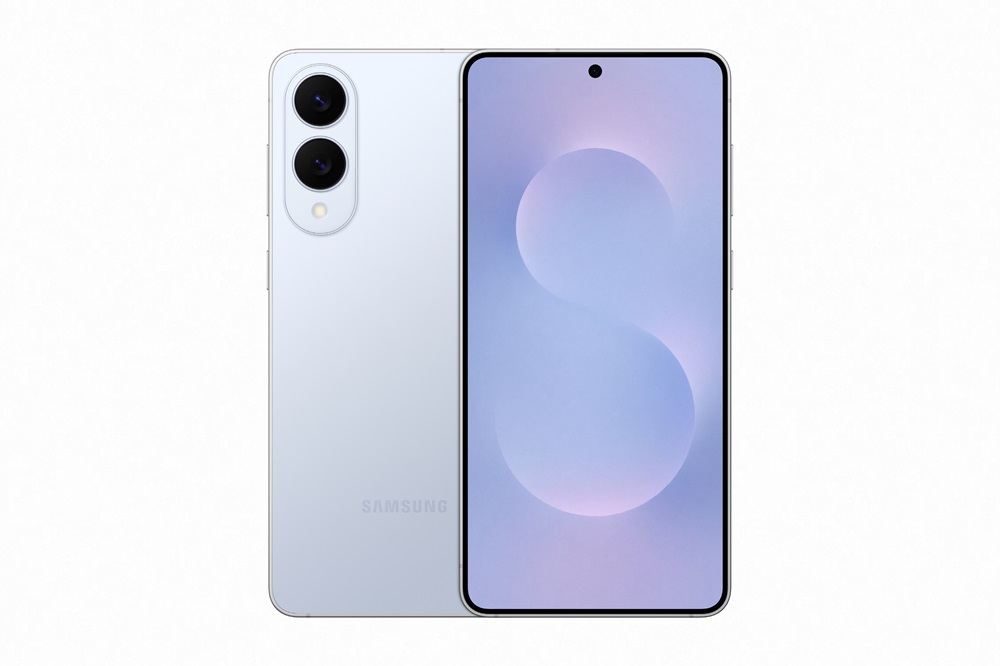ChatGPT might be the biggest name in AI chat right now—but it’s no longer the only name worth knowing.
While millions still rely on ChatGPT for writing, coding, brainstorming, and more, the world of artificial intelligence is evolving fast. And with that evolution comes a wave of ChatGPT alternatives—some smarter, some safer, some shockingly more human.
In this guide, we’ll explore six cutting-edge ChatGPT alternatives that you may have heard about—but probably haven’t tried yet. Whether you want something faster, more transparent, open-source, or just plain different, this list will give you serious reasons to look beyond ChatGPT in 2025.
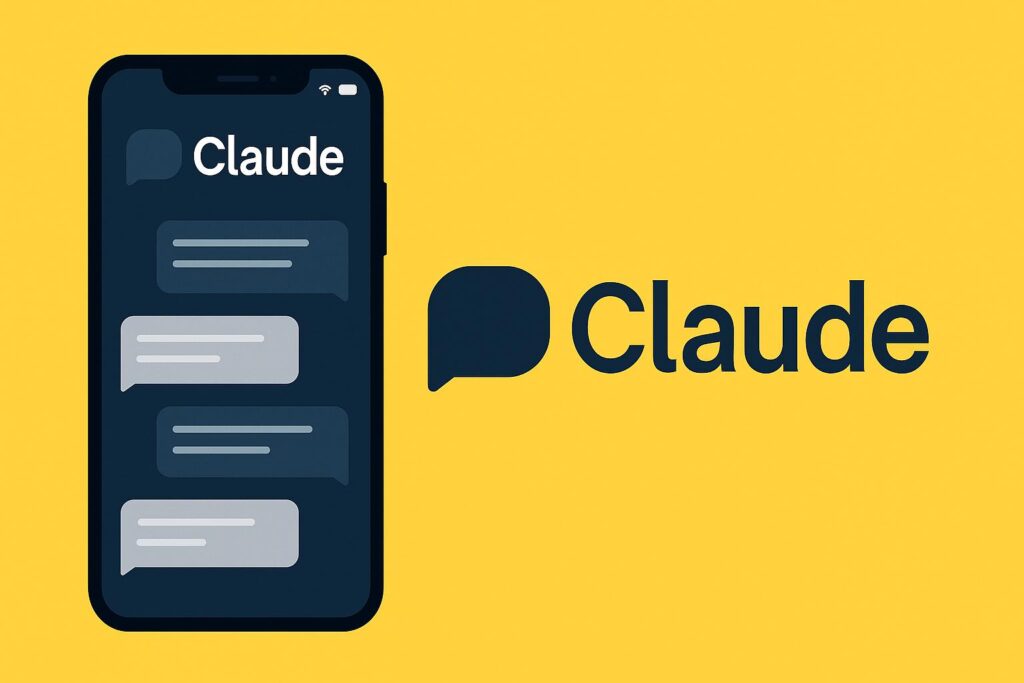
Claude by Anthropic
magine an AI that not only answers your questions, but actually thinks before it speaks. That’s Claude by Anthropic—a model engineered to be more careful, more helpful, and frankly, more thoughtful than most other ChatGPT alternatives.
Built by former OpenAI researchers, Claude 3 offers deep contextual memory, meaning it remembers more of your conversation and makes better long-form responses. It also operates under “constitutional AI” principles, which means it’s trained to avoid bias and toxic content by design.
Claude is especially useful in education, healthcare, and law, where careful language matters. It doesn’t just answer; it reasons with empathy and caution. Unlike many bots that respond instantly but shallowly, Claude reflects deeply before generating responses. This makes it ideal for users who want nuanced writing, ethical boundaries, and consistent tone.
Claude supports multimodal input and integrates well with productivity tools. Whether you’re writing a research paper or drafting a sensitive business memo, Claude stays balanced and thoughtful. It’s also known for being more transparent about its limitations.
Curious why Claude might outshine ChatGPT? It’s better at nuance, safer in sensitive environments, and more suitable for business or education use.
These qualities make Claude one of the strongest ChatGPT alternatives available today.
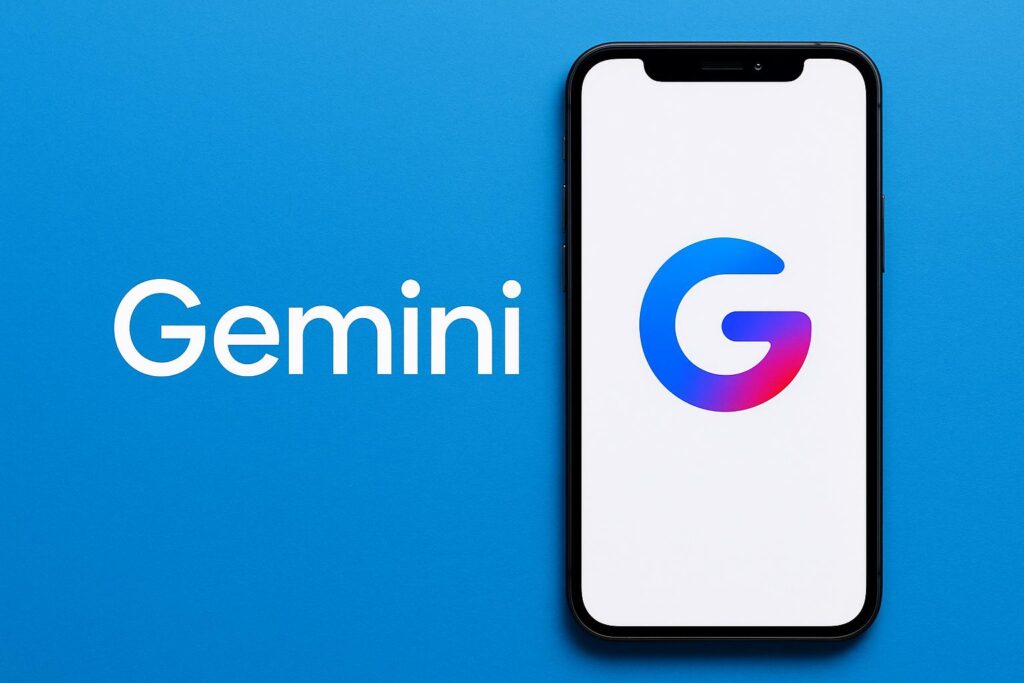
Gemini by Google
What if your AI assistant had the power of Google Search built in? That’s exactly what Gemini (formerly Bard) brings to the table—and it’s changing the game for anyone who values live, accurate information over static text generation.
Gemini is fully integrated with Gmail, Docs, and Sheets, turning it into the AI brain behind your entire digital life. It’s one of the only ChatGPT alternatives that lets you create emails, summarize meetings, AND pull up real-time facts—all in one place.
Its multimodal abilities allow you to interact using images, voice, or text, making it far more versatile than many of its competitors. Gemini also lets you personalize experiences with Google Workspace, integrating naturally into your workflow without learning new tools.
The AI is continually evolving with data from Google Search, which means its insights remain relevant, current, and precise. The intuitive interface makes it easy for users of any technical background to adapt quickly.
Developers love Gemini’s API access, while everyday users benefit from its seamless UX. It also improves weekly through search data—learning as the internet evolves.
Wondering what makes Gemini stand out? It’s constantly learning from the open web, so your results feel fresher, smarter, and more contextually aware than other AI models.
For professionals and students looking for ChatGPT alternatives with strong research backing, Gemini is an obvious choice.
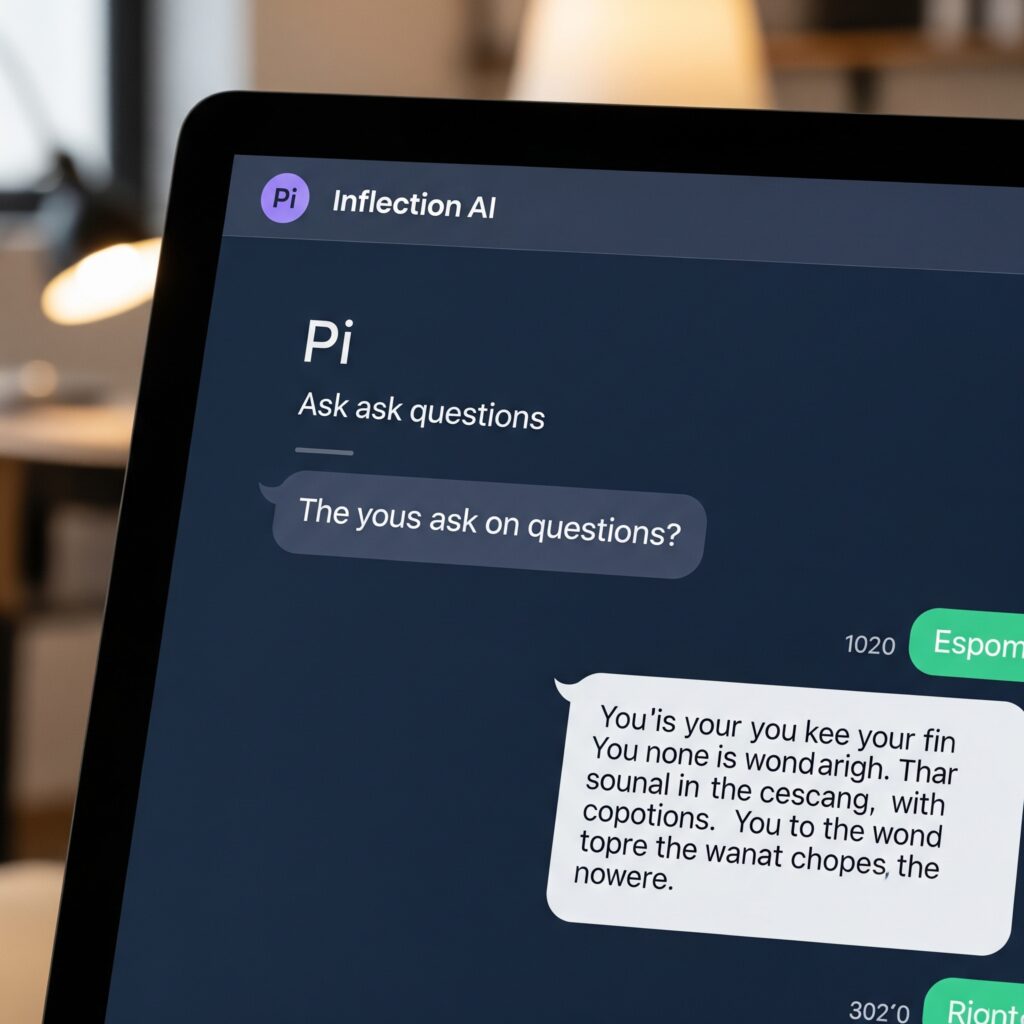
Pi by Inflection AI
If ChatGPT feels too robotic or task-focused, Pi will surprise you in the best way. Designed to feel like a companion more than a chatbot, Pi specializes in human-style conversations, personal reflection, and emotional support.
Where most ChatGPT alternatives aim to be faster or smarter, Pi focuses on being more human. Its tone is warm, its pacing is relaxed, and it genuinely tries to connect with you as a person, not just solve your problem.
This makes Pi perfect for late-night reflections, daily journaling, emotional venting, or just decompressing after a long day. You won’t get curt answers or clipped info dumps. Instead, Pi listens, responds empathetically, and often helps you think through problems rather than just provide answers.
Pi also introduces unique features like memory-based conversation, mood tracking, and conversational prompts that help spark self-reflection. It’s more than just a tool; it’s an experience that feels like talking to someone who understands you.
Unlike clinical-sounding assistants, Pi’s design feels safe and welcoming. It’s ideal for users who care about emotional tone and human nuance. With its soothing interface and gentle pacing, Pi provides a meditative digital space.
Not convinced yet? Try talking to Pi for 10 minutes. You’ll feel like you’re chatting with a close friend who’s surprisingly articulate—and powered by AI.
It’s one of the most emotionally intelligent ChatGPT alternatives available.
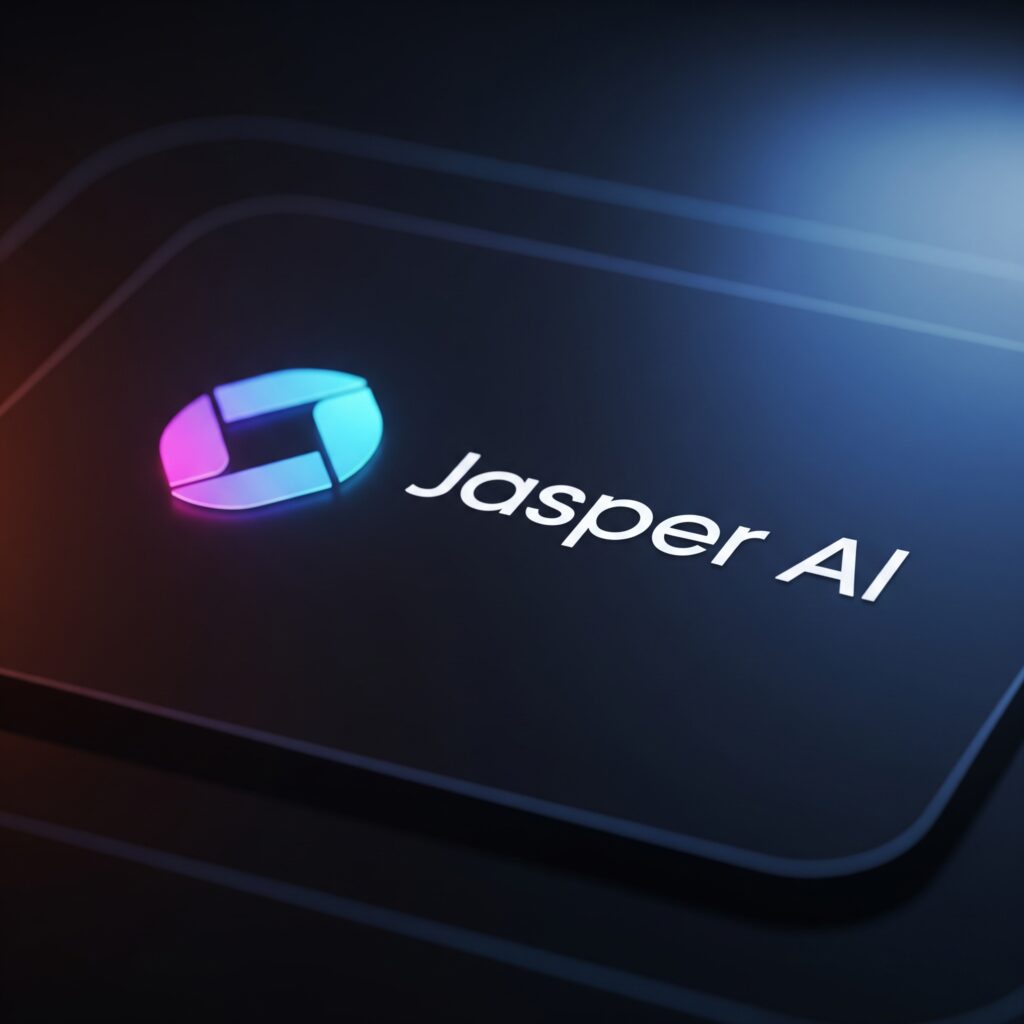
Jasper AI
Meet the AI copywriter used by top marketing teams around the world. Jasper AI is built for professionals who need to create fast, publish smarter, and dominate SEO—without sounding like a robot.
Unlike ChatGPT, which is a generalist, Jasper is trained on marketing, branding, and advertising best practices. It has over 50 writing templates, integrates with Surfer SEO, and even helps manage team collaboration. Among ChatGPT alternatives, it’s the go-to tool for scaling content without sacrificing quality.
Jasper is especially helpful for agencies and entrepreneurs. It helps generate blog posts, landing pages, ad copy, emails, and social media content—all optimized for your audience and tone. You can even train it with your brand voice, so the copy sounds just like your team wrote it.
It also supports image generation, built-in content analytics, and workflow tools that make collaboration easy. Jasper continues to evolve with monthly updates focused on real-world business needs.
Jasper’s AI also provides content briefs and outlines that help structure your writing workflow. Whether you’re launching a campaign or optimizing a landing page, Jasper streamlines the process.
Curious how Jasper outperforms ChatGPT in content? It writes like a marketer, thinks like a strategist, and edits like a human—all in seconds.
Jasper is one of the most business-savvy ChatGPT alternatives on the market.
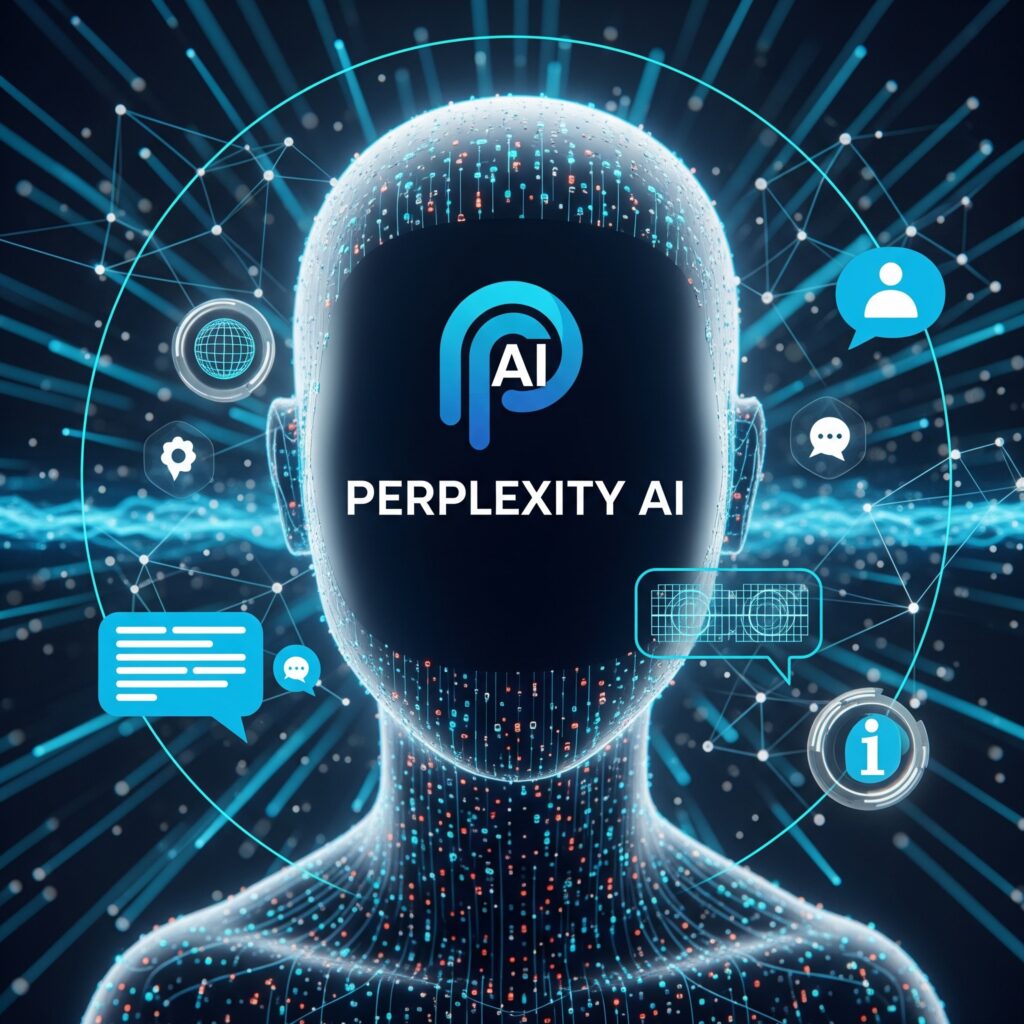
Perplexity AI
If you’re tired of AIs making things up, Perplexity AI is here to restore your trust. This tool behaves more like a search-powered researcher, combining the clarity of citations with the fluidity of conversational AI.
Instead of guessing, Perplexity shows you its sources—real-time links, books, and academic references—so you can double-check facts or dive deeper. If ChatGPT ever felt like a confident bluffer, Perplexity feels like a transparent expert.
Perplexity is a great tool for students, academics, and professionals who rely on facts and research. It helps summarize complex documents, respond to detailed queries, and even track down hard-to-find data.
Its UI is fast, clean, and ad-free, making it a joy to use. You can switch between simple Q&A and deeper exploration modes depending on how thorough you need to be.
It also supports voice search and browser extensions, which improve usability across platforms. The AI is constantly updated with current events and verified knowledge, making it ideal for research-intensive environments.
Want to fact-check your AI? This is the most honest and research-oriented of all ChatGPT alternatives.
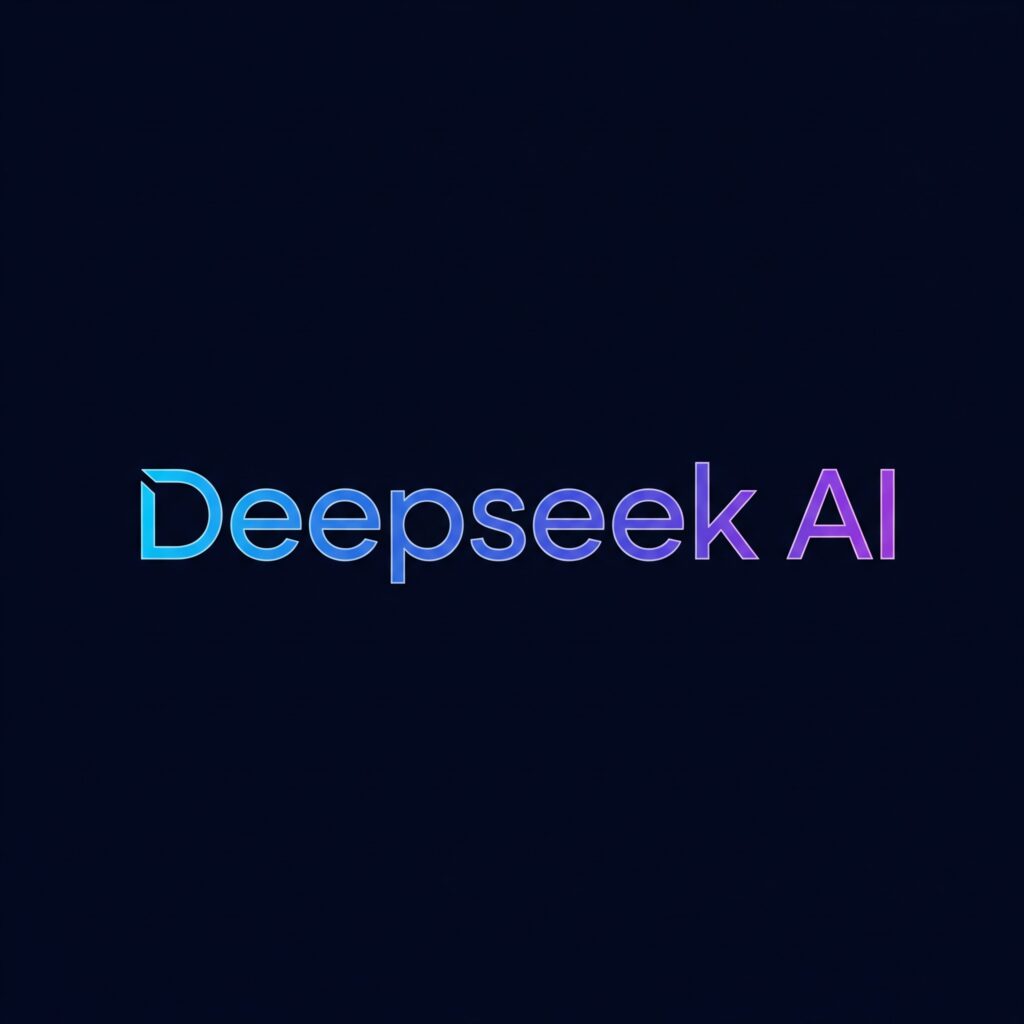
Bonus: DeepSeek AI
Think of DeepSeek AI as the hidden gem among ChatGPT alternatives—powerful, open-source, and customizable for serious developers. With variants like DeepSeek-VL (vision + language) and DeepSeek-Coder, it’s already a favorite in the research and coding world.
It shines in technical accuracy, supports both English and Chinese fluently, and—here’s the kicker—you can download the model and run it locally if you want full control. That makes it perfect for companies, labs, or even solo developers building AI into their own platforms.
Beyond freedom and transparency, DeepSeek brings speed, scale, and reproducibility. You get full control over how it’s trained, deployed, and updated. That means no vendor lock-in and a truly customizable AI experience.
It’s especially appealing for enterprises or researchers focused on privacy and control. You can audit the code, understand the data, and experiment openly.
The model’s accuracy in scientific and technical language sets it apart, while its adaptability lets organizations align the AI with mission-critical goals.
Intrigued by the idea of owning your AI model? DeepSeek lets you step behind the curtain and build smarter, safer systems your way.
Easily one of the most open and flexible ChatGPT alternatives available.
(Currently not available for phone versions)
Conclusion
If you’re still only using ChatGPT, you might be missing out on some seriously powerful, versatile, and even friendlier tools. These ChatGPT alternatives—from Claude’s deep-thinking approach to Gemini’s search-first logic, and DeepSeek’s open architecture—offer compelling reasons to explore beyond the default.
Each alternative brings something unique: Claude is ideal for critical thinking and ethical use cases. Gemini excels at integrating real-time search. Pi offers an emotionally aware experience. Jasper leads in content marketing. Perplexity builds trust through citation. And DeepSeek is revolutionizing transparency in AI development.
As AI becomes part of our daily lives, the tools we choose will shape our workflows, our creativity, and even our mental health. So don’t settle for one-size-fits-all. Try these ChatGPT alternatives and see what’s possible.
📌 P.S. Curious what else is trending?
👉 Head to the Tech section of our website and check out what’s new—we’re always testing fresh tech
💬 Did we miss any in the list of ChatGPT alternatives you love? Let us know in the comments—your favorite might just make it into our next update!
